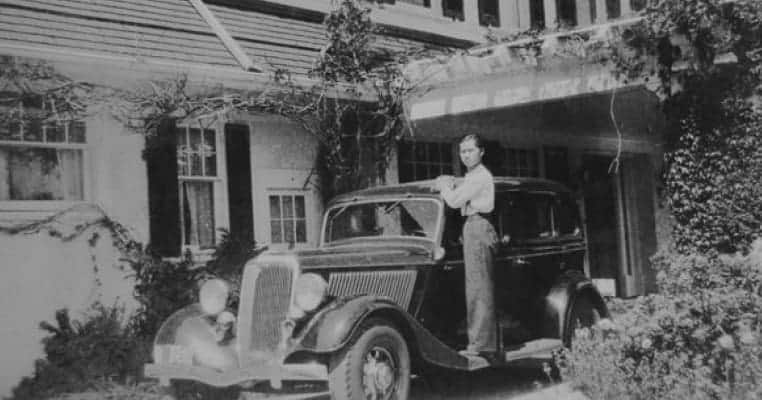William “Bill” Gun Chong, BEM, (1911 – 2006) had himself quite an adventure during World War II. A Chinese-Canadian born in Vancouver, British Columbia, he was visiting relatives in Hong Kong in 1941, when all hell broke loose and the Japanese invaded and swiftly conquered the British enclave. After scary run-ins with the occupiers, Bill managed to escape. He then volunteered to serve with the British Army Aid Group, a paramilitary organization that operated in southern China as a unit of British Directorate of Military Intelligence Section MI9.
Bill was given the codename “Agent 50” (“five-oh”), and inserted into Japanese occupied China to gather intelligence, help shepherd POW escapees to freedom, and deliver desperately needed medical supplies. He spent the years from 1942 to 1945 travelling behind enemy lines, doing his best to avoid the unwelcome attentions of both Japanese patrols and Chinese outlaws. He was captured on three separate occasions, but he proved himself a slippery customer, and managed to escape and resume his clandestine work each time.

Bill Chong’s Path to War
Bill Chong was born and raised in Vancouver, in an era rife with anti-Chinese discrimination. He grew up in a country where he could not vote, and where he could not even use a public swimming pool alongside white Canadians. Opportunities for advancement and upward mobility were few and far in between for Chinese-Americans, and equality was a pipedream. Against that backdrop, he eked a living from menial and low paying jobs. That did not prevent him from becoming a patriotic Canadian.
When WWII began, Bill was a house servant and cook in Vancouver. When Canada joined the war, the local Chinese community was divided about whether Chinese-Canadians should volunteer to fight. As some saw it, why volunteer to fight for a country that treated them as second class citizens? Others argued that volunteering to fight would shift public perceptions about Chinese-Canadians and their right to full citizenship. As one veteran put it: “We weren’t demanding something extra, we just wanted to be equal“.
Bill was in the latter camp, and he tried to do his bit out of patriotism and love of Canada. However, Canada did not seem to love him back: when he attempted to enlist in the army, he was turned away by recruiters who were unenthusiastic about signing a “Chinaman”. As fate would have it, Bill Chong would end up playing a greater role in the war than anybody could have imagined when he was spurned by the Canadian military.
It began with a family bereavement. Bill’s father died in Canton, and his sister, who lived in Hong Kong, wrote her brother to tell him that he was needed to help settle the deceased’s estate. So he travelled to Hong Kong in 1941, but probate turned out to be more complicated and took much longer than expected, and weeks dragged into months. Bill was still in Hong Kong in December of 1941, when Japan kicked off the war in the Pacific and Asia by attacking American, British, and Dutch colonial possessions.

On December 18th, Japanese forces invaded Hong Kong Island, whose garrison included Canadian units. After a week of heavy fighting, during which thousands of civilians were killed, the Japanese secured the island and forced the defenders to capitulate. Like many who found themselves living under Japanese occupation, Bill Chong was appalled by the brutality and rudeness of the conquerors. He grew particularly incensed after he witnessed a Japanese soldier execute a wounded Canadian officer, and decided that he would do something about it.

